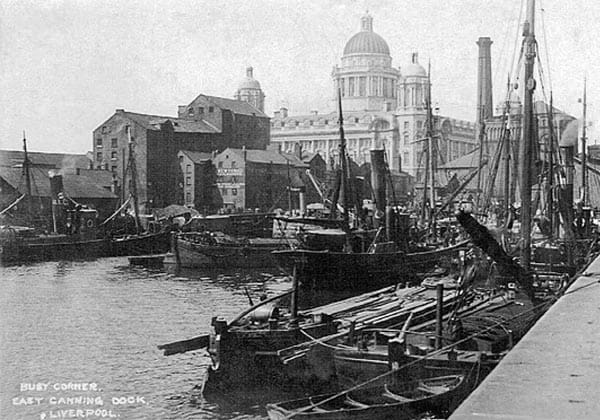Casualised labour forces depend on sporadic and non-guaranteed work, behind which lurks an ever present body of unemployed labourers willing to take any work made available. With little financial weight to throw around, industrial action struggles within an inconsistent and desperate workforce which lacks the stability and radicalism to maintain a strike.
The casualisation of industrial work in the early 20th century was especially brutal, and docks were at its forefront. Docks had a hiring process whereby people would collect at the docks in the morning and hope to be chosen for work out of the crowd. This work was incredibly labour-intensive and very wage-unintensive. One would only be engaged for a few days at most and those who weren’t chosen loitered around the harbour, hoping more work would emerge. Work was plentiful (in the 1920s Shanghai employed around 60,000 casual dock workers every day), but demand did not meet supply.
The fight against casualisation wasn’t limited to improving employment, wages, and hiring practices. Dock workers almost exclusively lived in slum housing and were frequently exposed to disease. Further, the docks themselves were highly unsanitary and unsafe workplaces. The workers had to be represented by stable organisations which had their best interest at heart, which ultimately leads to the last factor — support by state institutions and agencies.
In many ways, the early 20th century waterfront represents a primitive form of the casualisation seen in universities today. Dockworkers did not receive consistent wages, only payment per job completed. But university staff are rarely, if ever, paid by their hours worked — instead by hours contracted. Dock workers had much poorer working conditions, though university staff still work in classes that are over-subscribed with an insufficient capacity to keep up with the required work. Whilst the NTEU isn’t negligible in size, it isn’t comparable to unions at the height of militancy in the 20th century or even the largest unions in Australia currently. Further, the dockworkers of the past had a much greater reputation for militancy than teaching staff do in our times.
The glimmer of ‘registration’ — the practice of keeping a register of consistent labourers — was first seen by Liverpudlians in 1912, securing a sense of quasi-employment. WWI saw an immediate jump in registration at docks, so much so that by 1919 a national body had been established to coordinate the registration lists. Alas, the voluntary nature of the schemes became a liability in peacetime once employers looked at their massively oversized registers and thought it right to trim the fat. Next came maintenance, proposed at the 1920 Shaw Inquiry to ensure consistent pay independent of the difficulty to ensure consistent work which was ironically found to be unworkable without a sufficient registration system.
What now? This impasse mirrors that of the USyd casual right now. It is a long fight without a huge amount to show for it as of yet, and despite the continued importance of unions, questions also continue of how much one should engage in such ‘bureaucratic’ institutions.
Many would laugh, but at a certain point in England decasualisation gained wide appeal. The Churchill government introduced mandatory registration and maintenance. 3134 working days were lost to strikes between 1939 and 1955, but workers’ power had mainstream support it never had before. Even The Times favoured it on the grounds that the greater security for workers would be an efficiency boost. The application of the 1965 Devin Report ensured that the highest possible number of workers were attached to a single employer and less than 10% of one’s work week was spent in other employment. Dock labour boards became equally made up of employers and employees. Officially, casualisation had ‘ceased’.
A shallow history in such short time begets shallow analysis, but a number of questions and observations emerge. Strike activity continued at a steady rate, but this doesn’t indicate whether it continued for employment and wage reasons or for other reasons. Regardless, it was a successful decasualisation movement that was contained almost entirely within ‘bureaucratic’ unionism and parliamentary reformism: these were not wildcat strikes. British dock workers’ unions were much larger than the NTEU, but surely this indicates even less capacity to maintain industrial action not supported by union executives. Many who argue that it is key to support the union rank-and-file and reject union organisers posit equally that it is more bottom-up democratic and also that it is in the workers interest. Would the same people believe this if it wasn’t necessarily in the workers interest to reject Patrick Brownlee and his ilk in the NTEU?
Of course, union presidents don’t fight for workers and I don’t endorse them, but it poses the real question of what it means to engage in unions; do we engage in them because we wish to improve the lives of individual workers or because we believe that unions are the bastion of social change? To what end is it useful to align with people who are against you if it improves your working conditions? You can’t believe both of these things; revolutionary unionists regularly reject legislative routes and attempt instead to radicalise individual union members and their wins are in many cases despite this strategy.
If nothing else, we learn that decasualisation is possible and from a much worse position than that which Australian university staff now maintain.





